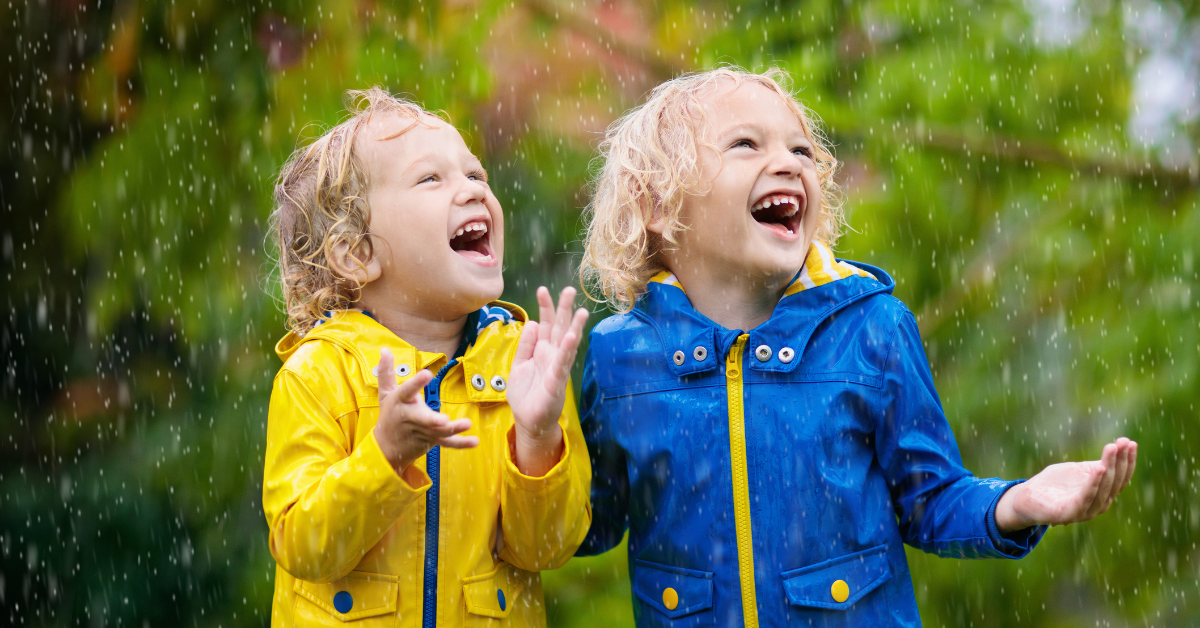
The Importance of Outdoor Play in Winter
At Play Sense, we have a play-based learning program to suit every family. Enrol your little one and give them the best start to learning. Get in touch to find out more.
Just because the temperature has dropped doesn’t mean children have to stay inside all day. In fact, playing outside is extremely beneficial for children, especially in winter weather. Despite the misconception that cold weather makes children sick, fresh winter air is good for everyone.
During the cooler months, it is common for children to be restricted to indoor play at home, and only permitted to play outdoors when it is warm and sunny. Many parents fear that their children will not “like” being outside in the cold, or that they will get sick from being outside in the cold fresh air. For this reason, it is particularly important that young children enjoy outdoor activities in their early childhood education service. Playing outside in autumn, winter, and early spring, each present their own unique opportunities for exploration and learning. Therefore, outdoor play should be embraced in all types of weather, as it is crucial for children’s ongoing development.
The Most Common Winter Myth Dispelled
My child will get sick if they play outdoors in the cold
It’s no secret that most parents blame winter air as the cause for colds and the flu. Although the viruses that cause flu and colds are more common in the winter months, the circulated air in closed environments is the main cause of your child getting sick. All of the bacteria, dirt, dander, and other germs simply get recycled through the air vents over and over. The more time you spend inside, the more you are exposed. In fresh, outdoor air, children do not have to rebreathe the germs of the group, and the chance for spreading infection is reduced. By encouraging outdoor play in winter, children gain much needed exposure to fresh air and Vitamin D, while avoiding bacteria.
Playing outside allows your child an escape from indoor germs and bacteria. This will not only be good for the healthy bunch; the sick kids benefit from the fresh air as well. Just make sure they are properly bundled up and moving around to capture and generate warmth. Being outside more often also allows your child to develop a stronger autoimmune system and a resistance to allergies. Studies have shown that children in rural areas or those who are active outside have the best overall health.
The physical health benefits of outdoor play
Just because it’s cold outside doesn’t mean your children have lost their energy or desire to play. It’s easy to feel restless when cooped up inside during the cold winter months. Playing outdoors in winter promotes physical development and well-being. This is because outdoor play encourages the use of the whole body by offering a safe space to run, jump, and exercise key muscle groups. You must remember your child is still growing during these months, and prolonged sessions of inactivity are not conducive to their muscular development. Through activities such as riding tricycles, swinging, and running, children increase their large muscle use. This increase in physical activity supports children’s gross motor development and overall health. Physical activity gives your immune system a power surge for a full 24 hours. A stronger immune system leads to less illness and less use of antibiotics.
The emotional benefits of outdoor play
Outdoor activities also promote emotional health benefits, such as self-confidence, and the ability to assess risks. By encouraging outdoor play in the winter, children learn to identify hazards, such as slippery surfaces, and moderate their behaviour to ensure their safety.
Further, challenges associated with winter environments, such as icy leaves, and games played in fog, also provides children with new ways to develop their emotional skills. Through wintery games, children learn to explore, work together, and find harmony in endless problem-solving opportunities.
The social benefits of outdoor play
Finally, playing outdoors with others encourages social development and collaboration. This is because play teaches children how to work together in groups, which includes learning to share, negotiate, and solve conflict. The winter also offers a variety of ways to stimulate your imagination through play. Social outdoor play also provides children the opportunity to exercise and stretch their imaginations. In winter, the physical changes to the outdoor environment provide children with new opportunities for socio-dramatic play, and winter-themed games.
During the spring and summer, children become familiar with bright green foliage, flowers in bloom, and a warm climate. As the change in season, they come to see different characteristics in their environment, such as brown grass, fallen leaves, and ice. These developments provide children with new experiences and opportunities, such as learning about the seasons, and the life cycles of plants. Through outdoor play in the winter, children also learn to see their environment through a different lens.
Children who are encouraged to explore through play are also more likely to learn new skills and overcome challenges, which promotes self-confidence, resilience, and self-advocacy. The development of these social skills are highly important to the development of healthy social relationships, communication skills, and a strong sense of self.
When the weather gets colder, people generally tend to spend more time indoors. With more and more people staying in, it’s easier for germs and bacteria to spread because everyone is breathing in the same air. Therefore, letting children outside to play can help limit their exposure to germs and bacteria inside. Not only does outdoor play limit contact with harmful bacteria and germs, but it can also help children build up their immune systems so that they won’t get sick as often.
If your concerned regarding your child’s development and risks associated with the change in weather and concern of illnesses have a chat to your local paediatrician.
Dr Anisa Vahed- General Paediatrician
www.drvahedpaediatrician.co.za